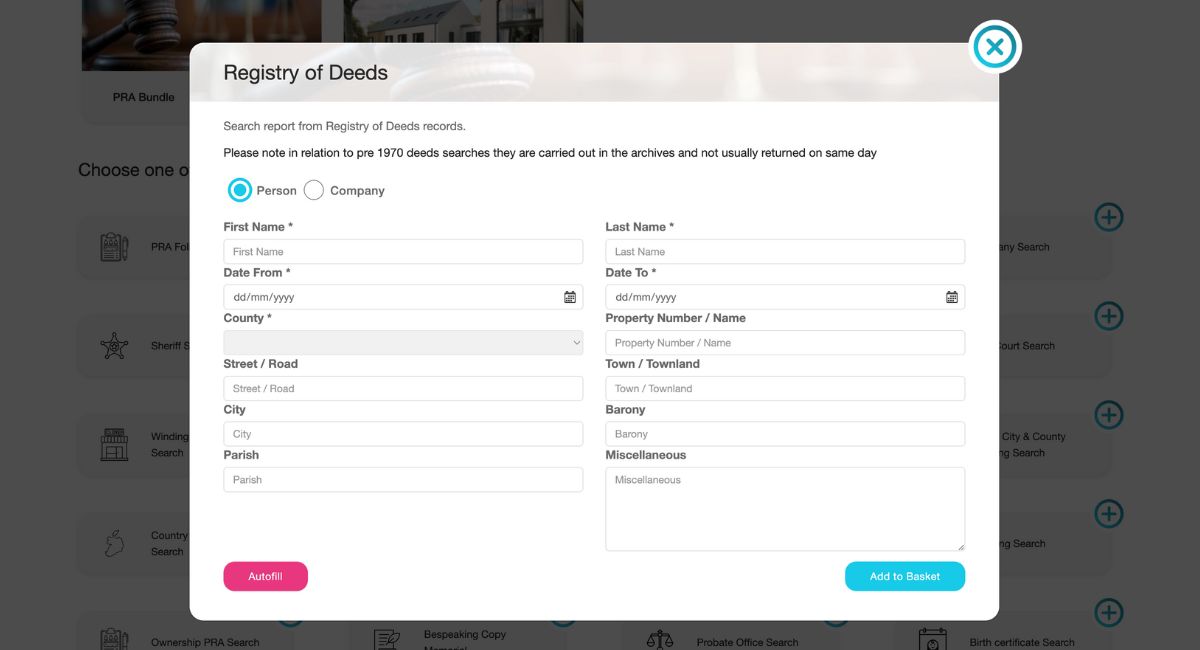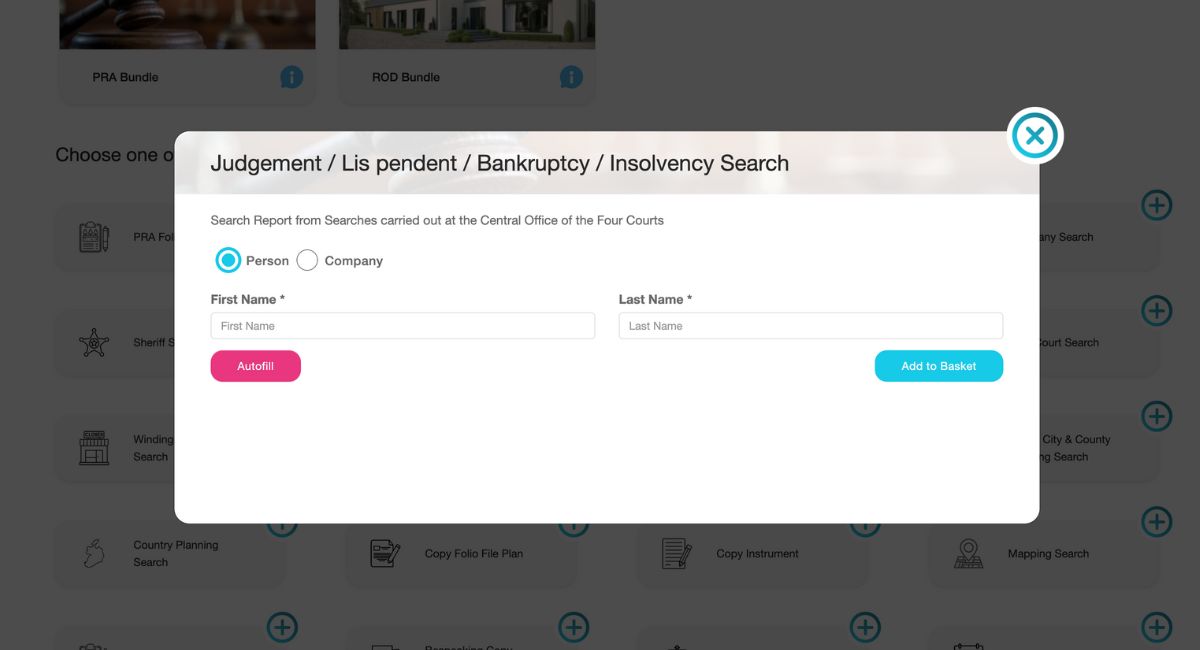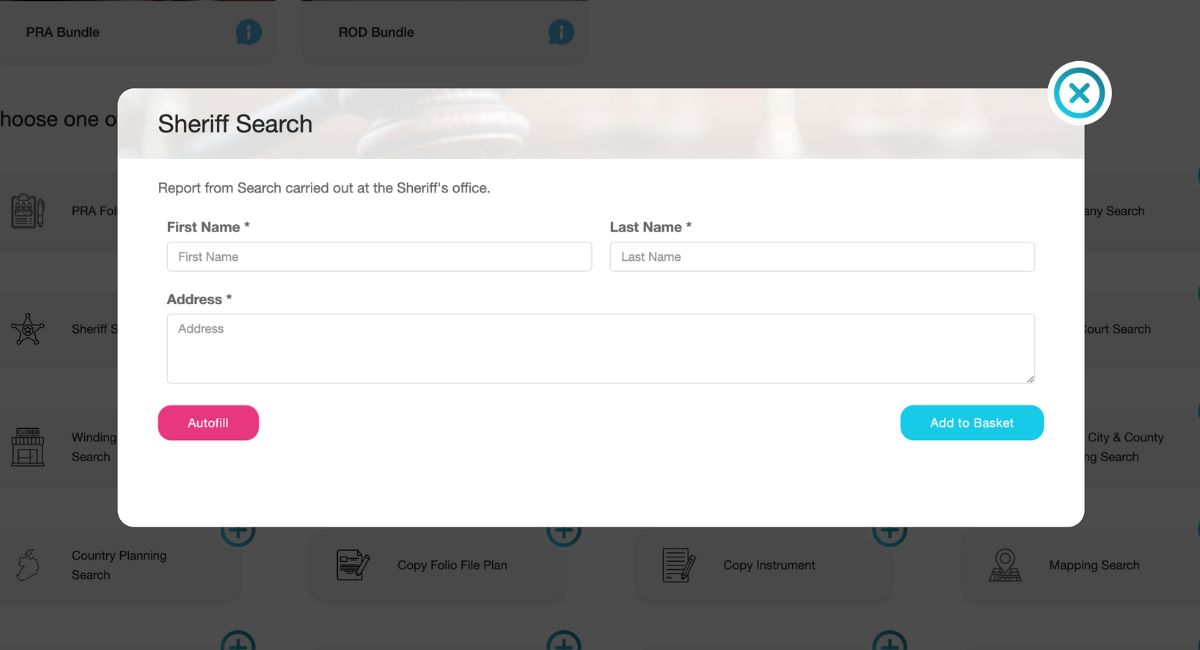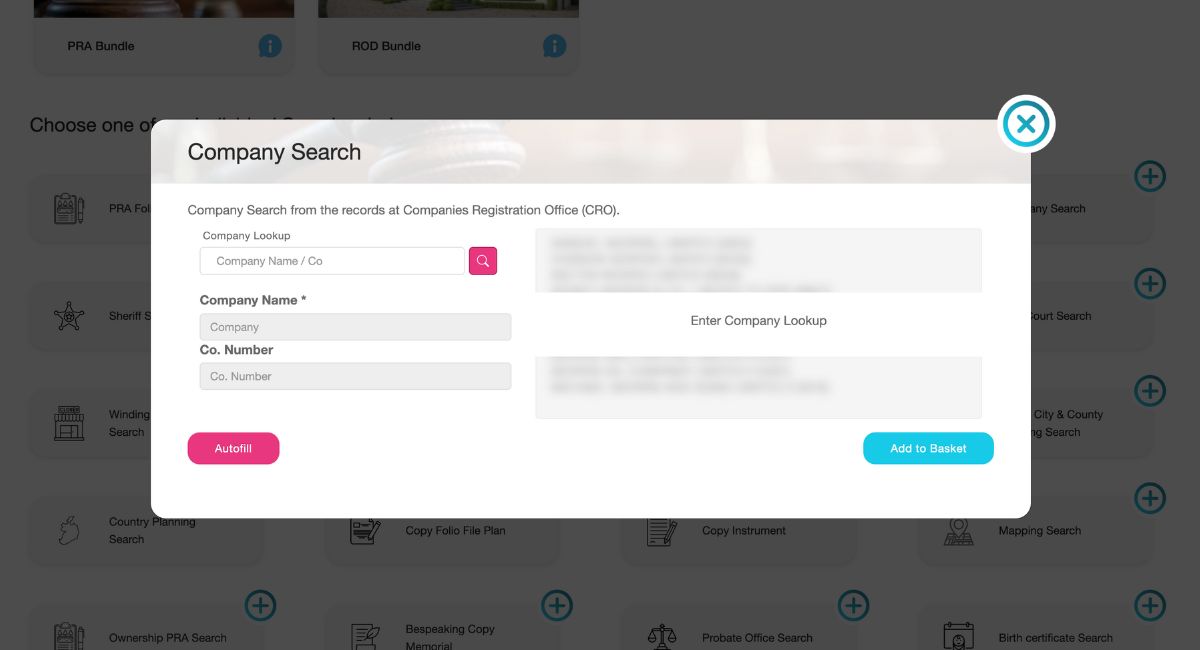
As a conveyancing solicitor, ensuring a seamless and legally sound property transaction for your client is top priority. An integral part of this process is conducting closing searches, a critical step in uncovering any potential legal and financial pitfalls associated with a property.
In this comprehensive guide, we will explore various types of closing searches, their importance, and how our platform can simplify the process, offering a fixed fee solution for conveyancing professionals like you.
Importance of Closing Searches
Conducting thorough closing searches is non-negotiable for conveyancing solicitors.
Here’s why:
- Risk Mitigation: Closing searches help mitigate risks by uncovering hidden problems before they become legal headaches.
- Client Protection: By performing comprehensive searches, you ensure your clients make informed decisions and avoid unforeseen liabilities.
- Legal Compliance: Many closing searches are legally mandated to ensure a smooth and lawful property transfer.
Types of Closing Searches
Closing searches encompass a range of critical inspections to ensure a successful property transaction, and can include the following:
- Title Searches
- PRA Folio Searches
- Registry of Deeds Searches
- Judgement Searches (Lis Pendens)
- Company Searches
- Business Name Searches
- Bankruptcy Searches
- Planning Searches
- Sheriff Searches (Civil/Revenue)
- Winding Up/Petition Searches
- Probate Searches
Title Searches
Title searches validate the property’s ownership and any potential encumbrances.
A title search is the process of inspecting public records to establish and validate the legal ownership of a property. Title searches are carried out using various resources, such as deeds, tax liens, land records, court judgments, and more. We will discuss this in more detail later in this post.
PRA Folio Searches

A folio is a title document by the Land Registry within the ‘registration of title’ system. Supplementary maps, or title plans, are also included. These searches furnish comprehensive property information, encompassing its description, any transferred portions, ownership specifics, and details such as charges, rights of way, and burdens.
For purchasing solicitors or solicitors representing the buyer, this document provides a high level of assurance regarding ownership and the status of title burdens. It ensures state-backed indemnity for any Land Registry errors.
Typically, the folio reference number is readily available to the purchasing solicitor/conveyancer as part of the seller’s title documentation. Folio searches are then conducted using this unique folio number, following a county/number/letter format.
The folios are divided into three sections: property details, ownership specifics (including cautions or inhibitions), and all registered burdens against the property.
Registry of Deeds Searches

Registry of deeds searches are a fundamental part of the due diligence process in property transactions and are carried out to obtain essential information about a property’s history, ownership, and any encumbrances or interests associated with it.
What are Registry of Deeds searches important?
These searches are essential for verifying property ownership, understanding property history, and avoiding potential legal issues. In this legal search guide, we will walk you through the intricacies of Registry of Deeds searches and offer insights into how you can make the process more efficient.
Judgement Searches (Lis Pendens)

A judgement search, also known as a Lis Pendens search, is commonly performed by examining the names of individuals or entities selling a property and those who are buying it. This search is often carried out when a solicitor commits to safeguard the interests of a lender or lending institution that plans to issue a mortgage in connection with the property transaction.
Why are Lis Pendens Searches important?
Lis pendens searches Identify essential information about pending legal actions or claims related to a property. These searches help potential purchasers, sellers, and other stakeholders understand any potential legal encumbrances on the property, which could affect its title, ownership, and value. By identifying such legal disputes early in the process, Lis Pendens searches allow parties to address these issues, negotiate resolutions, or make informed decisions.
Company Searches
Company Searches typically involve accessing official records, public databases, and various sources of information to obtain details about a company’s legal status, financial standing, ownership, and other relevant data.
Company searches can reveal information such as the company’s name, registration date, registered office address, directorship, financial reports, outstanding charges, and more.
Company searches also play a pivotal role in conveyancing by offering a comprehensive view of a company’s legal status, financial health, and ownership. These searches ensure legal compliance, confirm ownership, assess liabilities, and provide transparency.
Business Name Searches
A business name search provides information including the status of the business name, its registered address, the registration date of the business name, and the nature of the business.
Why are Business Name Searches Important?
Business Name Searches help ensure legal compliance, confirm ownership, assess liabilities, and protect the interests of all parties. By preventing fraud, clarifying contractual details, and offering insights into financial standing, business name searches enhance transparency, reduce risks, and contribute to the smooth and legally sound transfer of property.
Bankruptcy Searches

Bankruptcy searches reveal whether an individual or business entity has filed for bankruptcy. These searches are conducted to obtain information about any bankruptcy filings, the type of bankruptcy, and the related case details. They can be performed on individuals or businesses, and the goal is to understand the financial history and current financial status of the subject in question.
Not to be confused with Insolvency searches – Insolvency searches reveal other forms of financial instability. Insolvency searches may reveal details about overdue debts, outstanding judgments, tax arrears, or other financial difficulties that can indicate insolvency.
Why are bankruptcy searches important?
Bankruptcy searches are crucial in the conveyancing process for several reasons, including:
- Protection of clients/buyers interests
- Identify financial risks
- Avoid future legal complications
- Clearing title issues
- Meet lender requirements
Overall, bankruptcy searches are important in conveyancing to mitigate financial risks, protect the interests of both buyers and lenders, and ensure a smooth and legally sound property transaction.
Petition Searches

A petition search determines if any petitions have been filed against a specific entity. This search is typically carried out to identify any legal actions, claims, or disputes involving the entity in question.
Why are petition searches important?
A petition search is vital in property transactions’ due diligence to reveal potential legal issues that could impact the entity’s ability to fulfil the transaction. It aids buyers and their legal representatives in evaluating the entity’s legal standing for informed property purchase decisions.
Reasons for a Petition to Arise?
Petitions to courts can emerge for diverse reasons, including divorce, personal injuries, and bankruptcy. In the realm of conveyancing searches, a crucial type is the ‘Petition for the winding-up of a company,’ heard by the High Court. To safeguard buyer interests, solicitors must confirm that the property isn’t subject to liquidation, ensuring sellers maintain authority over the property for a valid sale.
Planning Searches

Planning searches investigate the planning history and status of a property. The purpose is to gather information about any existing or potential planning restrictions, permissions, or issues that might affect the property’s use or development.
Why are planning searches important?
Conveyancing solicitors perform planning searches to ensure that the property complies with local planning regulations and that the buyer is aware of any restrictions or obligations associated with the property.
LSB offers two types of planning searches:
- Country Planning Search
- Dublin City Council Planning Search
Both searches provide a comprehensive Planning Search Report from 1964 to date. Commencement search dates may vary with each Planning authority.
Sheriff Searches

The Sheriff’s (Receiver of Fines) report will indicate whether any orders against goods and chattels have been filed. Additionally, the search result will specify if a Receiver has been appointed for the property.
Sheriff’s search (revenue) refers to an inquiry made to the Sheriff’s office or relevant authority to obtain information regarding any outstanding fines, debts, or legal claims against the property being transferred during a property transaction.
The search aims to ensure that there are no unresolved financial or legal issues associated with the property that could affect the transfer of ownership. It may involve checking for any outstanding orders against goods and chattels, as well as verifying if a Receiver of Fines has been appointed for the property.
Conveyancing solicitors often conduct such searches as part of their due diligence to provide a comprehensive assessment of the property’s legal status before completing the transaction. The goal is to identify and address any potential issues that could impact the buyer’s rights or the property’s marketable title.
Each type of closing search plays a vital role in identifying potential issues and protecting your clients’ interests.
Step-by-Step Guide for Conducting Closing Searches
Performing closing searches effectively requires attention to detail. Here’s a step-by-step guide:
- Identify the specific type of closing search required for the property transaction.
- Register/Login to Legal Search Box to initiate the search process.
- Select your search bundle or specific legal search type.
- Enter the property details and any additional information required for the search.
- Utilise the platform to gather and analyse the data efficiently (Legal Search Box presents you with a
- Present your findings to the client, discussing any potential issues and the necessary next steps.
Our platform, Legal Search Box streamlines this process, saving you time and providing a hassle-free experience for conveyancing professionals.
Benefits of Using Legal Search Box for Fixed Fee Closing Searches
- Simple Dedicated Orders Portal: Experience a seamless journey with our user-friendly portal, where placing and managing orders is a breeze.
- Client Searches All in One Place: Centralise your client searches effortlessly, providing a comprehensive overview of all the information you need in one convenient place
- Multi-User Accounts: Collaborate efficiently with a multi-user account feature, ensuring your team can access the information they need for a collective approach to closing searches.
- Instant and Scheduled Searches: Choose the flexibility of instant or scheduled closing searches tailored to your workflow needs.
- Instant Search Fee Tally: Gain real-time visibility into your search fees with our instant search fee tally, ensuring transparency and budget control.
- Automatic Monitoring: Enjoy peace of mind with automatic monitoring features, informing you of any changes relevant to your closing searches.
- Enhanced Editing Features: Tailor your closing searches effortlessly with enhanced editing features, allowing you to refine and customise as needed.
- Cost Predictability: With fixed fee closing searches, you can accurately budget for your transactions/legal searches.
How long do conveyancing searches take?
Choose the flexibility of instant or scheduled closing searches tailored to your workflow needs. Most searches are returned almost instantly. However, some searches will take 3-5 business days.
- Planning Searches: 3-5 business days.
- Registry of Deeds: In relation to pre 1970 deeds searches they are carried out in the archives and not usually returned on the same day.
- Dublin City & County Planning Search: 3 – 5 business days.
- Country Planning Searches: 3 – 5 business days.
Conclusion
Closing searches are the backbone of a secure and lawful property transaction. By understanding the types, importance, and using our platform Legal Search Box, you can offer your clients a higher level of protection and ensure a smoother conveyancing process, saving your firm time and money. Discover the convenience of LSB and streamline your conveyancing process. Register now.
